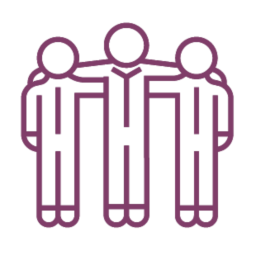Read or Hear the Latest Blog Posts

Combating identities … transitioning to civilian work
For military members and first responders, the gravity of a career transition into a ‘civilian’ role is more complicated than simply adjusting to water cooler chitchat. Rather, it’s about adapting to an entirely different work culture – and identity.

Automation … is it your new competition?
Automation can be extremely cost effective for businesses and other organizations. The downside is that many workers are being replaced by automation. In this blog post, Dr. Helen Ofosu discusses some of the implications for employees, business owners, and HR professionals.

Impostor Syndrome … there’s nothing fake about how it makes you feel
At work, do you ever have the feeling that you don’t belong there? Do you suspect that you don’t deserve the position you’re in? If so, you’re not alone. You might be experiencing the Impostor Syndrome …

Coded Language and Dog Whistle Expressions
A while back, a business associate reached out to me with an urgent and problematic situation. She was stumped by a situation and she knew I’d have some ideas. The problem was shrouded in coded language and dog whistle expressions …

Not your Mother’s Workplace, Not Her Idea of Balance
“All mothers are working moms.” The representation of a mother’s “work” is frequently inaccurate and it can be divisive. Both stay at home mothers and mothers who work outside the home deal with unfair expectations. There’s so much more to this story …

How Psychology Can Help Your Career — Q&A on I/O vs. Clinical Psychology (Part 2)
Looking for career help and want to know the difference between Industrial/Organizational (I/O) Psychology and Clinical Psychology? Dr. James Brazeau, C.Psych explains.

How Psychology Can Help Your Career — Q&A on I/O vs. Clinical Psychology
Looking for career help and want to know the difference between Industrial/Organizational (I/O) Psychology and Clinical Psychology? Dr. Helen explains.

How to Get Back to Work While Working Through a Death or Other Hard Events
There is no timeline for when a person’s mourning stops if it ever does. Unfortunately “bereavement leave” does have a beginning and an end. In most organizations, it’s approximately 3 – 5 days. This clearly isn’t enough time to work through an overwhelming loss.










